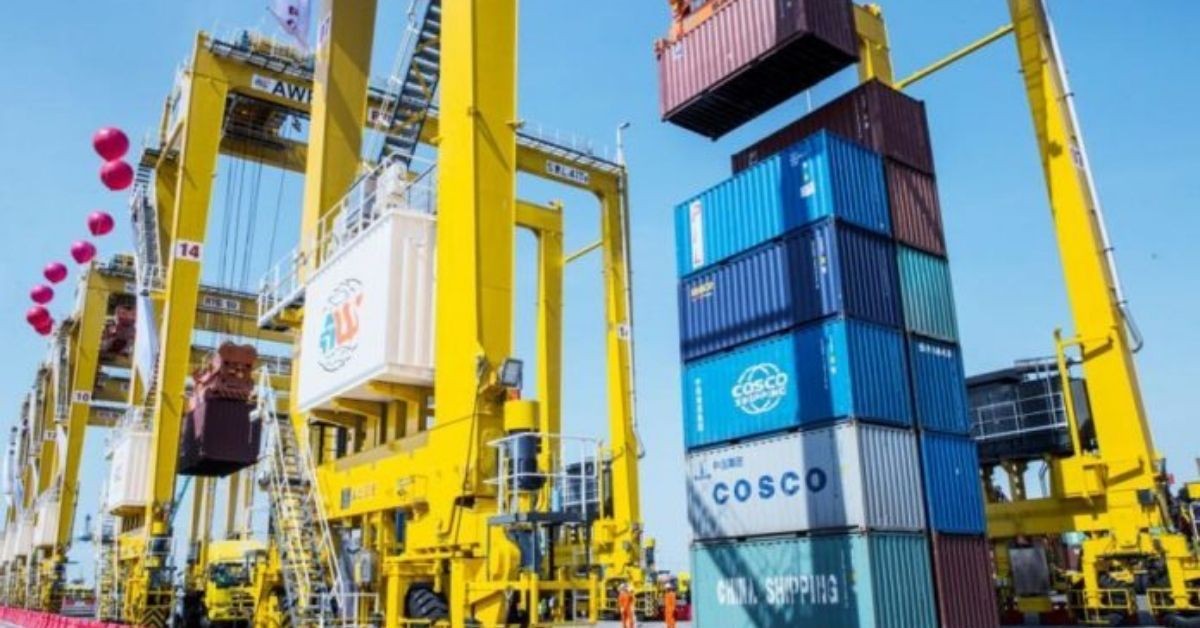Given the continuous delay in the approval process and challenges in meeting certain condition precedents, APSEZ has obtained an independent valuation (of the terminal) on “as is where is” basis, thereby the buyer and seller have renegotiated the sale consideration to $30 million,” APSEZ said.
Adani Ports and Special Economic Zone Ltd (APSEZ) said Thursday that it has “concluded” the sale of its newly constructed container terminal in Myanmar for $30 million, some $120 million less than what it has spent to erect the facility that suddenly waded into controversy and became a sticking point for the company’s environmental, social and governance (ESG) credentials.
APSEZ said the controversial terminal was sold to Solar Energy Ltd.
The sale consideration of $30 million is vastly different from its earlier announcement that the company has signed a share purchase agreement (SPA) with an unnamed buyer to sell the terminal “on a completed project basis, which ensures full recovery of its investments, loans given and cost to complete the project”.
India’s biggest transport utility led by Gautam Adani was forced to exit the terminal located in the Yangon region after it drew flak following the sanctions imposed by the United States on serving and former Burmese military officials responsible for the 1 February 2021 coup that dislodged Burma’s democratically elected government and the repression of the Burmese people.
Following a global backlash from some of its investors, on 22 May 2022, APSEZ said it had entered into a binding share purchase agreement for sale of its investments in Coastal International Terminals Pte Ltd, which has investments in the Myanmar project.
Coastal International Terminals was formerly known as Adani International Terminals Pte Ltd, a Singapore-based unit set up by APSEZ in July 2017 to pursue port and related business in the ASEAN region.
“The SPA is signed on a completed project basis, which ensures full recovery of its investments, loans given and cost to complete the project. The deal will be concluded after receipt of proceeds, in line with the agreed conditions precedent. Management has concluded that the net realisable value is higher than the carrying value,” the company said in May last year.
While announcing the third quarter results for FY23 on 7 February, the company said in an update that “as the project is yet to be operationalised, during the previous quarter, both the parties mutually agreed to extend the long stop date for further six months”.
The Share Purchase Agreement had certain Condition Precedents (CPs), including completion of the project and relevant approvals for smooth conduct of business by the buyer.
“Given the continuous delay in the approval process and challenges in meeting certain CPs, APSEZ has obtained an independent valuation (of the terminal) on “as is where is” basis, thereby the buyer and seller have renegotiated the sale consideration to $30 million,” APSEZ said in a veiled explanation on selling the terminal for a value much lower than what it had invested to build the facility.
“The buyer will pay the said amount to the seller within three business days on completing all the necessary compliance by the seller. On receipt of the total transaction value, APSEZ shall transfer the equity to the buyer and its exit will stand concluded,” the port operator said on Thursday.
APSEZ premature exit from the Myanmar terminal is a setback for the firm’s strategy to string together a ‘subcontinental ports necklace’ through organic/inorganic initiatives, extending from India to Colombo and Myanmar, with the objective to provide a South Asian logistical solution.
In May 2019, the Adani Group said it would invest as much as $290 million to build and run a new container terminal along the Yangon River on a 50-year deal.
The Myanmar project was helmed by Adani Yangon International Terminal Co Ltd (Adani), a unit of Coastal International Terminals Pte Ltd.
The Ahlone International Port Terminal 2 (AIPT 2) was being developed on 54 acres of land leased from the Myanmar Economic Corporation Ltd (MEC), an entity sanctioned by the U.S. following the February 1 military coup against the democratically elected civilian government of Myanmar.
MEC, one of Myanmar’s biggest corporations, is controlled by its military’s Directorate of Defence Procurement.
The MEC mobilises revenue for the Myanmar military, known as the Tatmadaw.
ITD Cementation India Ltd carried out the EPC work for the project.
The first phase of the terminal was expected to start operations by the end of 2020 with a capacity to handle 150,000 twenty-foot equivalent units (TEUs) but got delayed.
In the second phase, the capacity of the terminal was planned to be expanded to 800,000 TEUs.
The Yangon deal also included setting up a maritime university to upgrade skills of the local people and build infrastructure such as waterways and other transport facilities to bring efficiencies and drive economic development in the region.
The AIPT 2 will be part of the Yangon Port Cluster, which currently includes Asia World Port Terminal and Myanmar Industrial Port. Along with Myanmar International Terminals Thilawa, to the south of Yangon, the Yangon cluster handles 90 per cent of Myanmar’s exports and imports.







